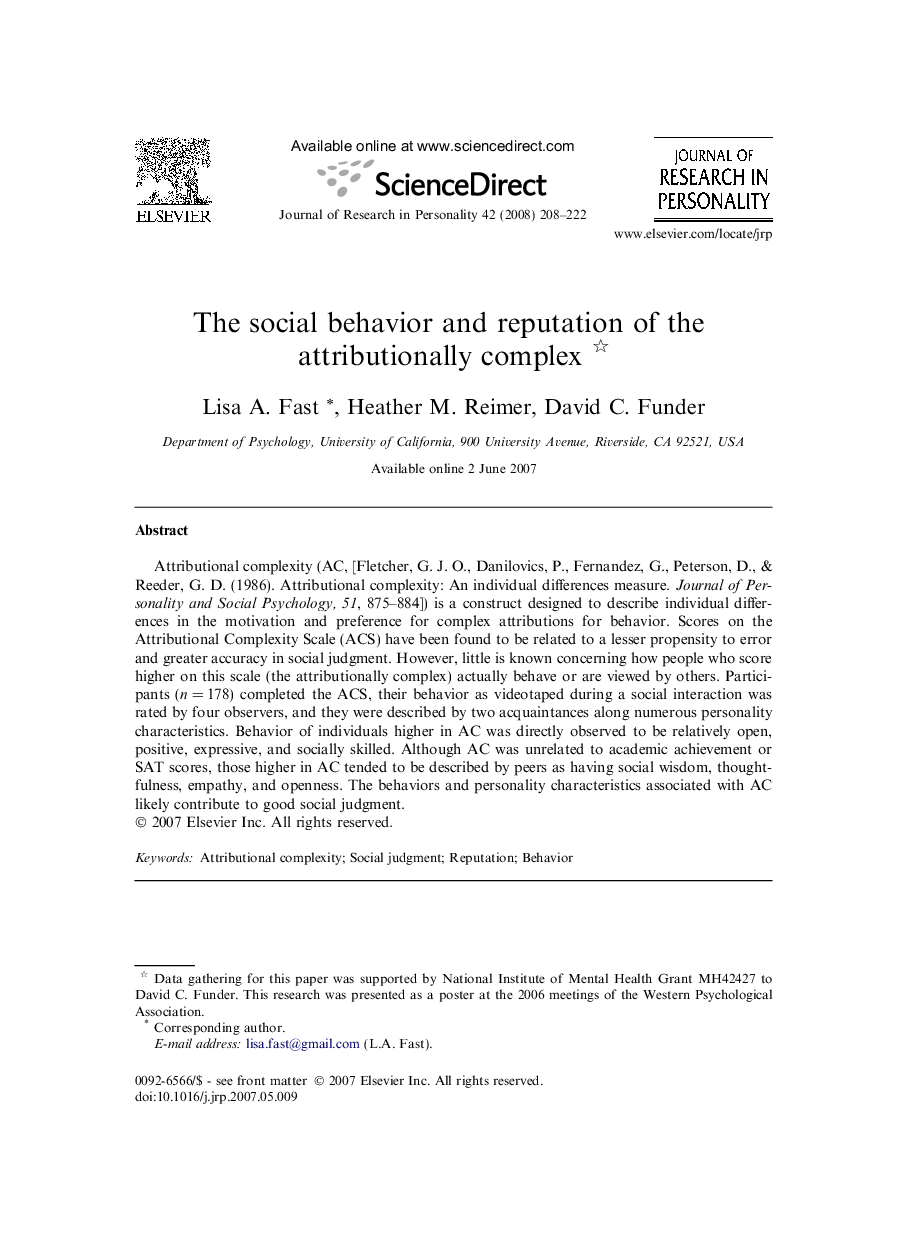| Article ID | Journal | Published Year | Pages | File Type |
|---|---|---|---|---|
| 952118 | Journal of Research in Personality | 2008 | 15 Pages |
Attributional complexity (AC, [Fletcher, G. J. O., Danilovics, P., Fernandez, G., Peterson, D., & Reeder, G. D. (1986). Attributional complexity: An individual differences measure. Journal of Personality and Social Psychology, 51, 875–884]) is a construct designed to describe individual differences in the motivation and preference for complex attributions for behavior. Scores on the Attributional Complexity Scale (ACS) have been found to be related to a lesser propensity to error and greater accuracy in social judgment. However, little is known concerning how people who score higher on this scale (the attributionally complex) actually behave or are viewed by others. Participants (n = 178) completed the ACS, their behavior as videotaped during a social interaction was rated by four observers, and they were described by two acquaintances along numerous personality characteristics. Behavior of individuals higher in AC was directly observed to be relatively open, positive, expressive, and socially skilled. Although AC was unrelated to academic achievement or SAT scores, those higher in AC tended to be described by peers as having social wisdom, thoughtfulness, empathy, and openness. The behaviors and personality characteristics associated with AC likely contribute to good social judgment.
